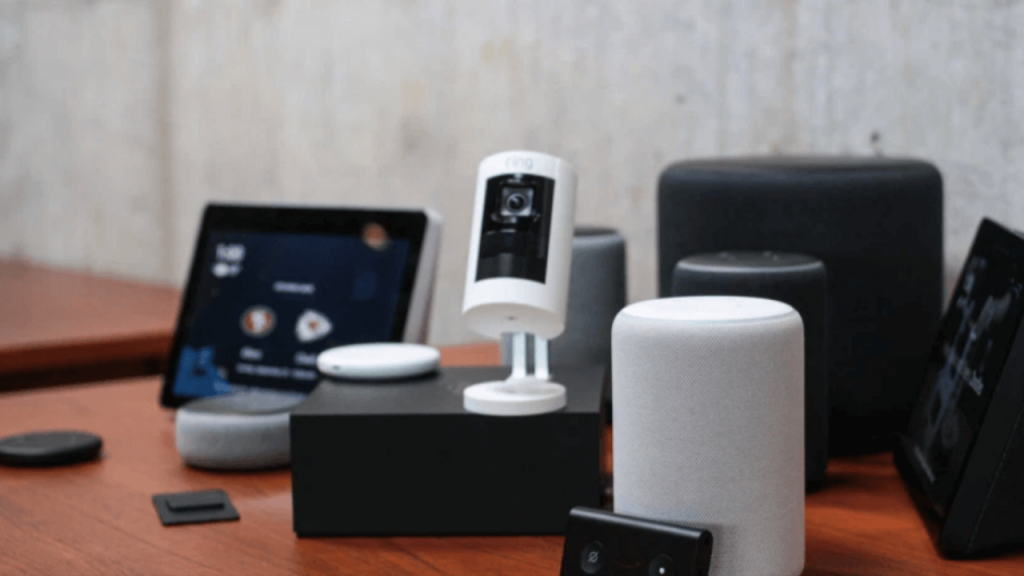The Internet of Things (IoT) is one of the disruptive developments of technology that has been prominently infiltrating homes, businesses, and cities. With the emergence of Alexa and Google Assistant, many companies have followed suit. One of the relatively new players in this game is IKEA, the Swedish company known for its functional and affordable home furnishing. Initially developed as a project in 2012, the company first dove in by introducing wireless chargers and smart LED lights.
IKEA Home smart
The collection of their items, labelled ‘IKEA Home smart’, started with the smart lighting ecosystem Trådfri (translates to wireless from Swedish), a cheaper alternative to Philips’ Hue. Cheap wireless chargers soon followed to compete with those of giant tech companies such as Apple and Samsung. In addition, IKEA also partnered with the speaker company Sonos to jointly introduce their €99 smart speaker Sympfonisk.
What is attractive about these line of products, aside from the low price, is the compatibility with Apple HomeKit, Alexa, and Google Assistant – an existing AI technology with a growing customer base. At the end of 2019, IKEA will launch yet another tech-induced furniture: smart blinds. All of these smart products are also controllable through IKEA Home smart app, similar to the likes of other incumbents. The company does not show signs of stopping as it has just significantly increased its investment for smart technology by introducing a new business unit.
A ‘smart’ business move
Björn Block, Head of the new IKEA Home smart Business Unit at IKEA of Sweden, exclaimed that the company would focus on “improving and transforming existing businesses and developing new businesses.” IKEA successful cost leadership business strategy extends to these smart product line as well, apparent with the success of Trådfri LEDs against Philips’ Hue, the first mover of smart lighting. It also seems that the company’s upcoming smart blinds, with a €99-129 price range, will also become the cheapest among the current €300-400 smart blinds available in the market.
IKEA’s years of experience in the furniture and appliance sector gives them a massive platform of specific product approach and gigantic distribution network. Most of the incumbents of smart home AI developers and device designers – Amazon, Apple, Google, and Samsung, among others – may have these platform as well. Still, they lack a massive retail presence, while IKEA has hundreds of physical stores that double as warehouses around the globe.

Perhaps the determining factor of IKEA’s likely success in the smart home battle is its integration of the fragmented smart home ecosystem to a single, IKEA standard as it has access to all home products. Whereas many developers of smart home devices, such as Samsung and Nest, are only experts in specific – and limited array – of products. If this business unit continues to introduce smart technology furniture, it has a strong chance of becoming the leader in the industry and may promote the rise of IoT into everyday lives.
While the security risks of cheap IoT products is still a question mark, there is no doubt that the introduction of smart products enhance the value of IKEA’s products to customers and magnifies the company’s vision of creating a better everyday life for people.
As Block says, “We are just getting started.”
References
Barrett, B., 2019. Ikea’s Slow and Steady Plan to Save the Smart Home. [Online]
Available at: https://www.wired.com/story/ikea-fyrtur-smart-blinds/
[Accessed 9 September 2019].
Chandler, S., 2019. IKEA Smart Home Investment Could Be Boost The Internet Of Things Needs. [Online]
Available at: https://www.forbes.com/sites/simonchandler/
[Accessed 9 September 2019].
Gartenberg, C., 2019. Ikea’s smart blinds have been delayed to later in 2019. [Online]
Available at: https://www.theverge.com/circuitbreaker/
[Accessed 9 September 2019].
IKEA, 2019. IKEA invests heavily in the smart home going forward. [Online]
Available at: https://newsroom.inter.ikea.com/news/
[Accessed 9 September 2019].
IKEA, n.d.. Smart home. [Online]
Available at: https://www.ikea.com/gb/en/product-guides/ikea-home-smart-system/
[Accessed 9 September 2019].
Newman, P., 2019. IKEA is looking to broaden its smart-home ecosystem with a new business unit. [Online]
Available at: https://www.businessinsider.com/
[Accessed 9 September 2019]. 5/5 (1)






